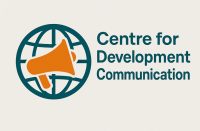One of the key challenges to Development Communication is that a greater number of NGOs still consider “awareness campaigns” the ultimate achievement. When they erect billboards, air radio jingles, and attain social media trends, they conclude they have achieved meaningful, measurable impact.
What needs to be known by a greater number of NGOs is that awareness without action is noise, while messaging without meaning doesn’t move communities.
As a development communication professional, I have witnessed that true impact begins when people change how they act, not just what they know. This means NGOs and development practitioners must do more listening, not just broadcasting; co-creation, not just shallow participation; and ensure culturally rooted, behaviour-driven communication approaches.
Therefore, there is a need for NGOs to make a radical shift from “raising awareness” to measuring transformation. This is because, in development, information alone doesn’t drive change; connection does.
For instance, COVID-19 presented a typical example of how awareness alone didn’t guarantee behaviour change. By mid-2020, almost all living adults and schoolchildren globally had heard of COVID-19. They were told how it spreads, the importance of handwashing, and putting on a face mask. They were also assured that the vaccine would prevent contamination and save lives.
Despite huge awareness from the government, media, and NGOs, we saw strong resistance to wearing masks and vaccine hesitancy, especially among the educated. A greater number of people even denied that the virus existed.
This happened because the government and its agents failed to understand that knowing is not the same as doing. As a development communication professional, this reinforces a core truth: behaviour change requires trust, cultural relevance, and two-way communication—not just information.
We must know that telling people what to do isn’t enough. We must listen, engage, and understand why they’re not doing it, and design communication approaches with targeted messages and the appropriate medium that meets them where they are.
We must acknowledge that COVID success did not come from the loudest awareness campaigns but from religious leaders and community change agents who simplified the importance of healthy practices and vaccine intake—youth influencers sharing personal stories and community health workers correcting myths face-to-face.
I strongly recommend that we apply lessons from COVID to family planning, gender-based violence, nutrition, and every other development challenge we face. Because communication that doesn’t change behaviour is just noise.
Audu Liberty Oseni
Director, Centre for Development Communication
